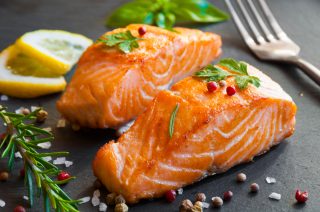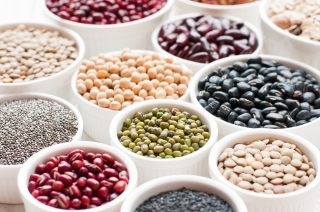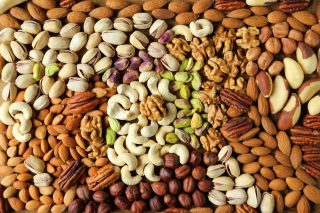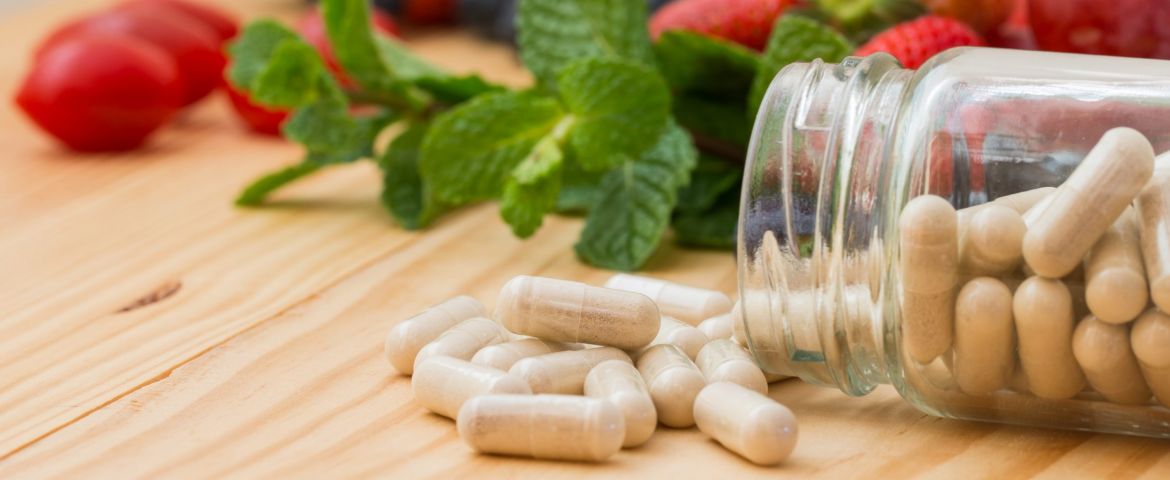By: Sophia Speroff, MPH, RD
Vitamins and minerals are essential substances that our bodies need to develop and function normally. There are 13 essential vitamins and each one plays a unique and vital role in keeping your body healthy. Vitamins aid in the growth, development, and function of all the cells. Your body cannot produce enough vitamins on its own, so we need to get them from outside sources. While many people take a daily multivitamin, most can get all 13 essential vitamins from foods and enriched foods. Multivitamins cannot take the place of eating a variety of foods that are important to a healthy diet.
Below are details of each of the essential vitamins:
1. Vitamin A

You have heard the superstition that eating carrots can help you see in the dark. That is not exactly true, but carrots do contain beta-carotene, a precursor to vitamin A, which helps your eyes adjust to light. Your vision and immune system rely on the antioxidant vitamin A to function correctly, as do your heart, lungs, and kidneys. Vitamin A takes two main forms: preformed vitamin A (retinol, retinyl esters), and provitamin A carotenoids (of which beta-carotene is one).
How much do you need?
Adult men should aim for 900 micrograms (mcg) per day. Adult women should aim for 700 mcg per day.
What should you eat?
Preformed vitamin A is found in meat, poultry, eggs, and other animal products. Provitamin A is found in fruits and vegetables, like sweet potatoes, squash, spinach, mangoes and, of course, carrots.
2. Vitamin C
Vitamin C, also called ascorbic acid, is an antioxidant that protects your body’s cells against free radical exposure in the environment from smoke, air pollution and ultraviolet light. Vitamin C also helps your body produce collagen, improves your body’s ability to absorb iron and helps your immune system function properly.
How much do you need?
Adult women typically need 75 milligrams (mg); adult men need 90 mg.
What should you eat?
Citrus fruits like oranges and grapefruits have a lot of vitamin C. Other foods that contain vitamin C include kiwis, red and green peppers, strawberries, and broccoli. Keep in mind that cooking can reduce a food’s vitamin C content.
3. Vitamin D
Living in Michigan, we all already know a thing or two about Vitamin D—or lack thereof. Vitamin D helps your body absorb calcium, which, as one of the basic building blocks of bone, is also why a long-term vitamin D deficiency can lead to osteoporosis and rickets. Our bodies can produce enough vitamin D on their own, diet none withstanding. But if you live in a northern climate (hello, Michigan!) and/or do not spend a lot of time in the sun, you may need to take a supplement to get enough vitamin D.
How much do you need?
Recommendations vary, but most adults should aim for 600 international units (IU) a day to increase their vitamin D levels.
What should you eat?
Few foods naturally contain vitamin D. Fatty fish like salmon and tuna are some of the best natural sources of dietary vitamin D. Most of us get the bulk of our ingested vitamin D from foods fortified with vitamin D, such as all milk sold in the U.S. and many cereals.
4. Vitamin E
Vitamin E is a fat-soluble antioxidant that helps protect your body against free radicals. It is also used in blood cells and immune system functions.
How much do you need?
Adults typically need 15 mg per day.
What should you eat?
Vegetable oils like sunflower, saffron, corn and soybean; nuts like peanuts and almonds, as well as sunflower seeds; leafy green vegetables like spinach.
5. Vitamin K
Vitamin K is important for healthy bones and aids in the blood clotting process, which is why it is so important for people on certain blood thinners to get enough vitamin K.
How much do you need?
Adult women typically need 90 mcg per day; adult men need 120 mcg per day.
What should you eat?
Green vegetables like kale and broccoli, meat, cheese, and yogurt.
B vitamins make up a whopping eight of the 13 essentials vitamins and play a vital role in your body’s ability to produce energy. The following are all considered B vitamins:
6. Thiamine
Thiamine, also known as vitamin B1, helps your body use carbohydrates as energy. It plays a critical role in nerve function, as well as skin, hair, and muscle health. Most nutritious food contains some amount of thiamine.
How much do you need?
Adult women typically need 1.1 mg per day, while adult men typically need 1.2 mg.
What should you eat?
Whole grains, meat (especially pork), fish, legumes, seeds, nuts and fortified bread, cereal, pasta, and rice.
7. Riboflavin
Riboflavin, also called vitamin B2, helps convert food into energy and is important in the growth and function of your body’s cells. Riboflavin also plays a key role in your metabolism, particularly metabolism of fats, drugs, and steroids.
How much do you need?
Adult women typically need 1.1 mg, adult men typically need 1.3 mg.
What should you eat?
Riboflavin naturally occurs in animal products like eggs, organ meat and low-fat milk, and green vegetables like broccoli and spinach. Many cereals, breads and grain products are fortified with riboflavin.
8. Niacin
Niacin, also known vitamin B3, helps convert food into energy and is important in the development and function of your body’s cells.
How much do you need?
Adult women typically need 14 mg; adult men need 16 mg.
What should you eat?
Poultry, beef, pork, fish, nuts, legumes, grains and many enriched and fortified breads and cereals.
9. Pantothenic acid
Riboflavin, or vitamin B5, helps convert food into energy and helps your body produce and break down fats.
How much do you need?
Adults typically need 5 mg per day.
What should you eat?
Pantothenic acid is naturally present in most foods. Foods particularly high in this vitamin include beef, poultry, seafood, mushrooms, avocados, potatoes, broccoli, whole grain, peanuts, chickpeas, and sunflower seeds.
10. Biotin
Biotin helps your body turn carbohydrates, fats, and proteins into energy. It also synthesizes glucose and is essential for healthy bones and hair.
How much do you need?
Adults typically need 30 mcg.
What should you eat?
Many foods contain at least some biotin, like whole grains, fish, egg yolks, seeds, nuts and certain vegetables like spinach, broccoli, and sweet potatoes.
11. Vitamin B6
Vitamin B6 is used in over 100 different enzyme reactions involved in aiding your body’s metabolism. It’s also plays a key role in brain development during pregnancy.
How much do you need?
Adults typically need 1.3 mg.
What should you eat?
Fish, organ meat, potatoes and other starchy vegetables and non-citrus fruits.
12. Vitamin B12
B12 is the heavy hitter of the B vitamins. Vitamin B12 plays an essential role in making DNA, the unique genetic material found in all of our body’s cells. It also aids the body in making red blood cells and protects nerve cells.
How much do you need?
Adults typically need 2.4 mcg per day.
What should you eat?
B12 is naturally found in animal products like beef, poultry, eggs, milk and other dairy products. Vegetarians and vegans are more at-risk for developing a B12 deficiency because of their diet and may need to take supplements or increase their intake of fortified foods.
13. Folate
Folate, also called B9, or folic acid when referring to synthetic folate, plays an important role in cell division and the creation of DNA and other genetic materials.
How much do you need?
Adults typically need 400 mcg per day.
What should you eat?
Folate is naturally found in asparagus, brussels sprouts, dark green leafy vegetables like spinach and fruits and fruit juices. Enriched bread, flour, pasta, rice and cereal also contain folic acid.
Does this list feel overwhelming? Worried you’re not getting enough of each of the 13? Talk to your doctor or other health care provider and ask if taking a daily multivitamin or supplementing your diet with certain vitamins from this list is a good option for you.
__________________________________________________________________
Sophia Speroff, MPH, RD is a Registered Dietitian of 10 years with her master’s in public health. Sophia has a tremendous background in both community and patient care and population health management. Her background also includes diabetes and chronic disease prevention and management, clinical dietetics, and wellbeing engagement in underserved communities. She has a passion for staying active, training for triathlons and half marathons and in her free time, Sophia enjoys hiking, folk dancing, and gardening.


